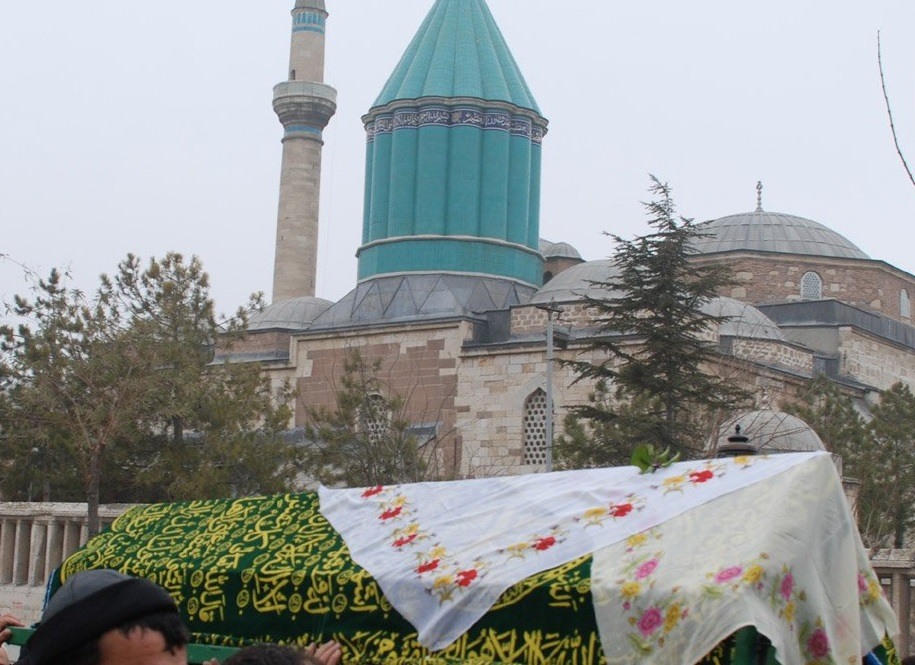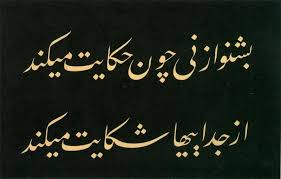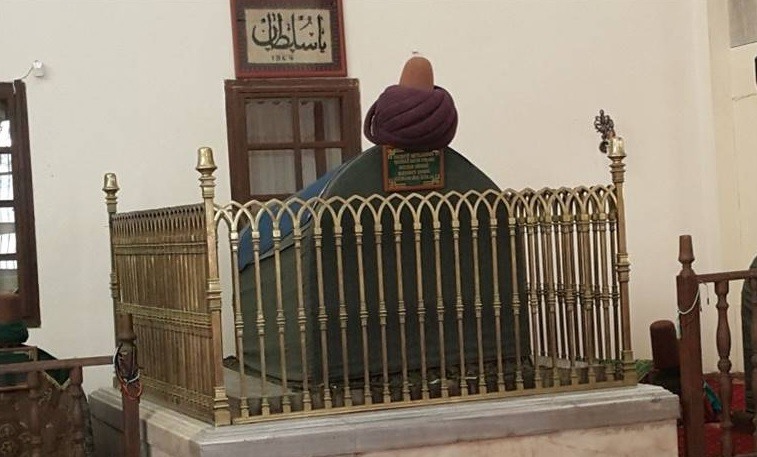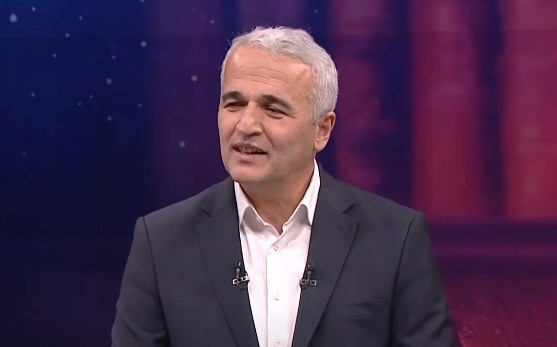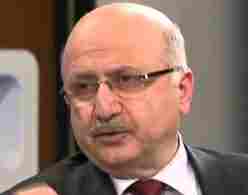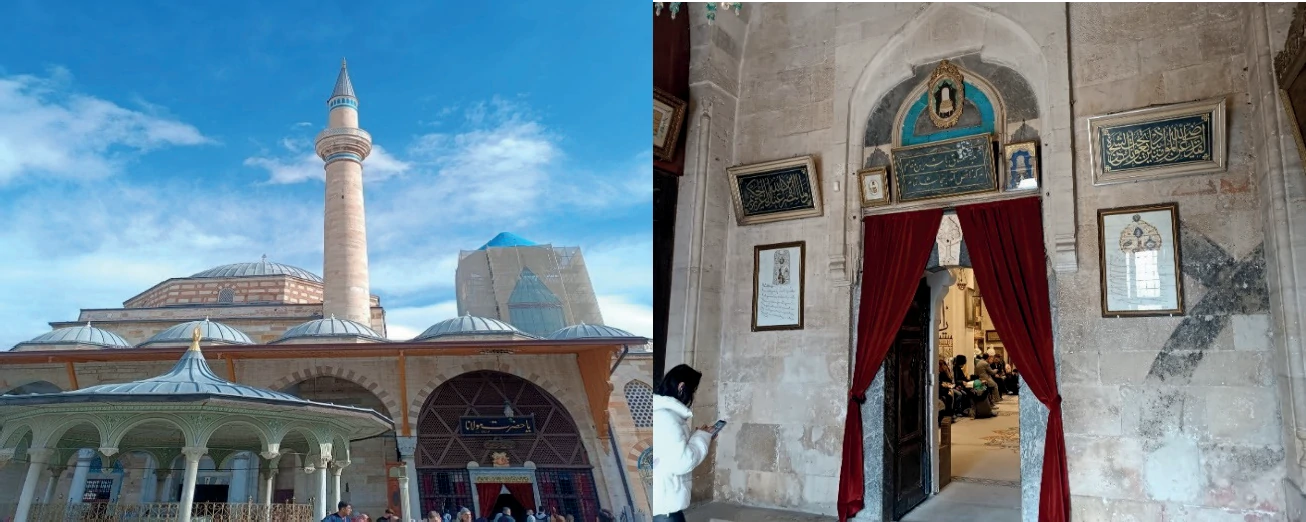MODERN TÜRK ŞİİRİNDE HZ. MEVLANA VE MEVLEVİLİK: VEFA MI, VEDA MI?
MODERN TÜRK ŞİİRİNDE HZ. MEVLANA VE MEVLEVİLİK: VEFA MI, VEDA MI?
RUMI AND MAWLAWIYAH IN MODERN TURKISH POETRY: FIDELITY OR FAREWELL?
Ahmet Murat ÖZEL*
ÖZ
Klâsik Türk şiirinde Hz. Mevlana hakkında dikkate değer miktarda şiir bulunmaktadır. Bir mutasavvıfın duygu dünyasını ortaya koyan bu klâsik tarzdaki şiirlerde çoğunlukla içselleştirilmiş bir tasavvuf düşünce ve kültürünün izlerine rastlanır. Ancak modern Türk şiirine geçişle birlikte Hz. Mevlana’nın şiirdeki temsili sorunlu hale gelir. Türk şiirinin modern evresinde Hz. Mevlana ve Mevlevilik üzerine yazan şairleri dört bölümde değerlendirebiliriz: 1) Tarihsel olarak modern şiir evresinde ortaya çıkmasına rağmen, klasik şiir dünyasına özgü şiirler yazan modernleşmemiş isimler. 2)Yeni şiirle ilişki kurmadaki zayıflıkları nedeniyle kusurlu-modern olarak adlandırabileceğimiz gruptaki şiirler. Bu şiirlerdeki şiir stratejisi genellikle Hz. Mevlana’yı klasik teşbihler ve sembolizm kullanarak özlem ve saygıyla anmak üzerine kuruludur. 3) Modern şiirimiz içinde yer alan şairlerce kaleme alınmış ama Hz. Mevlana ve Mevlevilikle ilişkisi fragmantal nitelikteki şiirler. Bu şiirlerde Mevlana ve Mevlevilik ana temayı oluşturmaz. 4) Modern şiir içinde, Hz. Mevlana ve Mevlevilik üzerine yazma sorunsalına çözümleyici örnekler sunanlar: Nazım Hikmet, Asaf Halet Çelebi, Hilmi Yavuz. Nazım Hikmet, Çelebi ve Yavuz’un bu son gruptaki şiirleri, klasik-modern gerilimine dair verimli bir tartışmanın konusu olma potansiyeline sahiptir ve bu makalemizde inceleyeceğimiz konudur. Modern Türk şiirinin, Hz. Mevlana ve Mevlevilik gibi klâsik edebiyatın önemli bir malzemesinin yeniden yazımında başarılı olamadığı söylenebilir. Yüzyıllar boyunca edebî geleneğin başat ve hatta kurucu unsuru haline gelen Hz. Mevlana ve Mevlevilik etrafındaki edebiyatın modern şiir sürecinde sahneden çekildiğini görüyoruz.
Anahtar Kelimeler: Modern Türk şiir, Mevlana, Mevlevilik, Nazım Hikmet
ABSTRACT
There is a considerable sum of poems on Rumi (Mawlana) in classical Turkish poetry. In these classical-style poems demonstrating the emotional world of a Sufi, chiefly there are traces of an internalised Sufi thought and culture. But with the transition to modern Turkish poetry, the representation of Rumi in poetry becomes problematic. We can evaluate the poets composing about Rumi and the Mawlawi order in four parts in the modern era of Turkish poetry: 1) Unmodernised poets who, although they appeared in the modern poetry era, wrote poems specific to the world of classical poetry. 2) Poems in the group that we can refer to as imperfect-modern due to their weakness in establishing contact with new poetry. The poetic strategy in these poems is generally based on remembering Rumi with longing and respect, using classical similes and symbolism. 3) Poems written by poets included in our modern poetry, but which are fragmentary in relation to Rumi and the Mawlawi order. In these poems, Rumi and the Mawlawi order do not constitute the central theme. 4) In modern poetry, those who provide analytical examples on the problem of writing on Rumi and Mawlawiyah: Nazım Hikmet, Asaf Halet Çelebi, and Hilmi Yavuz. The poems of Nazım Hikmet, Çelebi, and Yavuz in this last group have the potential to be the subject of a fruitful discussion about the classical-modern tension and they are the subject that we will examine in this article. Modern Turkish poetry has not been successful in rewriting in modern poetry such important classical literature as Rumi and Mawlawiyah. We see that the literature around Rumi and the Mawlawi order, which has for centuries been a founding element of the tradition with the effects we have described, is fading from the scene.
Keywords: Modern Turkish poetry, Mawlana, Mawlawiyah, Nazım Hikmet
Extended Abstract
In classical Turkish poetry, along with the contributions of Mawlawi poets, there are a number of poems on Rumi formed with the contributions of poets influenced by Mawlawi poetry. These poems generally refer to Rumi as the sultan of lovers, the ornament of the universe, showing the secrets of creation, the doctor, the sun, etc. Moreover, according to them, Mesnevi resembles treasure, pearl, table, witness, or the annotation of the Holy Quran; the sema’ resembles the place of judgment and the banquet table; the ney resembles the cellar of secrets, and the trumpet of Israfil (Raphael). These poems, which make the emotional world of a Sufi visible and can be evaluated within tekke (tasawwuf) literature, chiefly have traces of an internalised Sufi thought and culture. This kind of style and poetic preference is compatible with the analysis and tradition of the classical poetry world. This tradition and style are also compatible with the reader’s world, which classical poetry addresses. With the transition to modern Turkish poetry, however, the representation of Rumi in poetry becomes problematic. Despite the innovations of modern poetry, the existence of Rumi, which is an old theme, has not been fully realised. We can evaluate the poets composing on Rumi and the Mawlawi order in four parts in the modern era of Turkish poetry: 1) The poets, mostly Sufis, who wrote poems that were fully part of the world of classical poetry, although historically they appeared in the era of modern poetry: Salih Baba (b. 11206), Celaleddin Dede (b. 11208), Abdülbaki Dede (b. 1935), etc. 2) Poems that have approached modern poetry in terms of simplicity in language and abandoning the meter, but are in the group that we can call imperfect-modern due to their weakness in establishing contact with the new poetry of their time. The poetic strategy in these poems is generally based on remembering Rumi with longing and respect, and while doing this, they continue to use stereotypical similes and symbolism of classical poetry while simplifying them. 3) Poems written by poets in our modern poetry, but which are fragmentary in relation to Rumi and Mawlawiyah. In these poems, Rumi and Mawlawiyah do not constitute the central theme. This is how we can evaluate the references to Mawlana in Ahmet Muhip Diranas’s poem Ağrı (Pain), Attila İlhan’s poem Osmanlı Kasidesi (Ottoman Ode), Sezai Karakoç’s poem Hızır’la Kırk Saat (Forty Hours with Khidr), Fazıl Hüsnü Dağlarca’s poem Konya, and Hüsrev Hatemi’s poem Derûni Âyin (Spiritual Rite). 4) In modern poetry, those who provide analytical examples of the problem of writing on Rumi and Mawlawiyah: Nazım Hikmet, Asaf Halet Çelebi, and Hilmi Yavuz. We need take a closer look at the poems of the poets in the last group, since they have a potential to be the subject of a fruitful discussion on the classic-modern tension: Nazım Hikmet’s poem Mevlânâ (Mawlana) and Dergâhın Kuyusu (Well of the Dervish Lodge), Çelebi’s poem Semâ-ı Mevlânâ (Mawlana’s Sema), and Yavuz’s poem Mevlânâ ile Şems (Mawlana and Shems). One reason for this is that these poems establish a relationship similar to Ezra Pound’s relationship with tradition in his own poetry. Pound built an avant-garde and modern poem, and in doing so he was able to generously harvest the yields of tradition into his work. This attempt turns his poetry into a fragmented, flexible, interactive, and for that very reason modern, even postmodern poetry. One of the reasons we need to take a closer look at the said poems is the close relationship especially Nazım and Çelebi established with the Mawlawi order. Although we do not know that Hilmi Yavuz established such a relationship, his profound knowledge of classical culture carries his poetry to the level of the others. Modern Turkish poetry has not succeeded in rewriting in modern poetry such important material from classical literature as Rumi and the Mawlawi order. Specifically, despite the existence of vast academic literature on Rumi and Mawlawiyah, the absence of this correspondence in poetry further intensifies the contradiction. One of the reasons for this shortcoming is that the sensitivity of modern literature towards the classical has not been aroused. Tradition has not sufficiently caught the attention of the modern poet, so he has not been adequately equipped with the harvest that can be reaped from tradition. In addition, poets who have recognised and internalised the Mawlawiyah and other traditional materials are also seen to lack a different kind of equipment that would allow them to follow and catch up with the modern. Thus, we can say that a merry coincidence similar to Pound’s work did not occur in our poetry on the scale of Rumi and Mawlawiyah. Now the title of this article can be answered as follows: the representation of Rumi and Mawlawiyah includes an emotional fidelity but a poetic farewell.
Giriş
Modern şiirin doğuş koşullarına, başat tepkilerine ve yönelimlerine duyarlı olan çağdaş Türk şiiri içinde Hz. Mevlana’ya ve Mevleviliğe nadiren rastlarız. Yazıda işaret edeceğimiz birkaç modern şairin şiirleri hariç, çoğunlukla manzume diye adlandırabileceğimiz, modern şiirin tarihsel yolculuğundan habersiz bazı Mevlana şiirleri bulunuyor. Yani, başlığımızdaki modern ifadesi, bu evredeki gerçek modern örneklere değil, Türk şiirinin modernleşmeci evresine işaret etmeyi amaçlıyor. Bu haliyle modern olan şiirlerle, modern şiirin müdahalesinden mecburen etkilenerek eksik-modern olan şiirler yazımızın konusunu birlikte oluşturacak.
Bu noktada bir hususu daha açıklığa kavuşturmalı: Türk şiirinin modern evresi hangi şairle başlatılabilir? Bu sorunun, üzerinde anlaşılmış bir cevabı yok. Abdülhak Hamid, Tevfik Fikret, Yahya Kemal, Ahmet Haşim, Necip Fazıl farklı gerekçelerle modern şiirin başlatıcısı ya da habercisi sayılabilir. Dolayısıyla kurucu şair payesini vermekten sarfınazar ederek, daha pratik bir yol olarak, andığımız şairlerin temayüz ettikleri 19. yüzyılın son çeyreğiyle 20. yüzyılın ilk çeyreğini kapsayan dönemin Türk şiirinin, modernleşme virajını aldığını kabul edeceğiz. Bu sebeple dikkate alacağımız şairlerin en erken isimleri bu döneme ait olacak.
Modern şiirde Hz. Mevlana ve Mevleviliğin temsili meselesi, aslında bir yönüyle gelenek ve modernizm ilişkisinin edebî tezahürleriyle ilgilidir. Modern sanat ve edebiyat hakkındaki geniş bir literatürün varlığını hatırlatarak, burada sadece konumuzla ilişkili olarak, modern sanat ve edebiyatta geleneksel otorite ilkesinin aşındığının tespit edilmesine ve bu aşınmanın sonuçlarına dair birkaç gözlemde bulunmakla yetineceğiz.
Modern edebî yönseme, Baudelaire’den itibaren, sancılı bir süreç olan modernleşme esnasında kaotikleşen toplum, birey, şehir vb. karşısında, bir tür “yapay yüce”nin yaratımıyla da coşkuya kapılan ve bu biçimsiz ama göz önünde olan kaotik devinimi edebî yapıtta tekrarlayacak yordamlar ve biçemler yaratmak durumunda kalır. Bu yönseme, geleneksel toplumun dışarıdan gözlemleyemeyeceği bir yakınlıkta yaşadığı bütünlük ve düzen ilkesinin parçalanmasına, dağılmasına eşdeğer ve bu parçalanmayı sezecek bir akışkanlık yaratır. Modern edebiyat, modern bireyin kaotik uzamı olan şehirdeki kaygısını yakalar, modern şehrin ışıl ışıl çirkinliğinde bir güzellik ve canlılık keşfeder, bakışlarını ilâhî olandan yere, hatta yeraltına çevirir. Böylece Walter Benjamin’in ifadesiyle “modernizmin hakiki öznesi olan” modern kahramanı yaratır. (Baudelaire, 2013, s. 11)
Modern şiirde Hz. Mevlana ve Mevleviliğin temsili tartışması işte böyle bir matris içine oturmaktadır. Sorun şudur: Tasavvufi ve ahlaki çatısıyla, “yapay yüce”nin değil, müntesipleri ve muhiplerince makbul ve asli olan yücenin temessül ettiği, dinin ve metafiziğin konusu olan Hz. Mevlana ve Mesnevi nasıl olup da modern şiir içinde temsil bulacaktır? Baştan söylemeliyiz ki, gelenekle ilişki sorunu modern Türk şiiri içinde tam aşılmış değildir. Modern Batı şiirinde aşılıp aşılamadığı meselesineyse ileride Ezra Pound’un şiiri bağlamında döneceğiz.
Klâsik şiirde doğal olarak bu yönde bir gerilim görmüyoruz. Klâsik şiirin yapısı, belli uzlaşımlar temelinde şekillenmiştir. Klâsik şiir modern şiirin aksine, biçimsel ve tematik sürprizler ve skandalvari arayışlardan uzak kalır. Fredric Jameson’ın modern şiir bağlamında söylediklerine kulak verirsek bu, eski toplumsal grupların, özellikle de yazarın sözleşmesinde değişmez sinyaller gönderebildiği görece homojen okur kitlesinin varlığına olan bir güven üretir. (Jameson, 2008, s. 276) Şiirin bu niteliğinin toplumsal, ekonomik ve siyasi yapıların nitelikleriyle uyumlu olduğunu söyleyebiliriz. Halka halka, bir dinin, bir kozmolojinin, bir sultânın, bir cemaatin iradesine uyumlu bir toplumun şiiridir bu.
Devamı:…
* Doç. Dr., İstanbul Medeniyet Üniversitesi İslami İlimler Fakültesi, İstanbul, Türkiye. E-mail: ahmet.ozel@medeniyet.edu.tr


